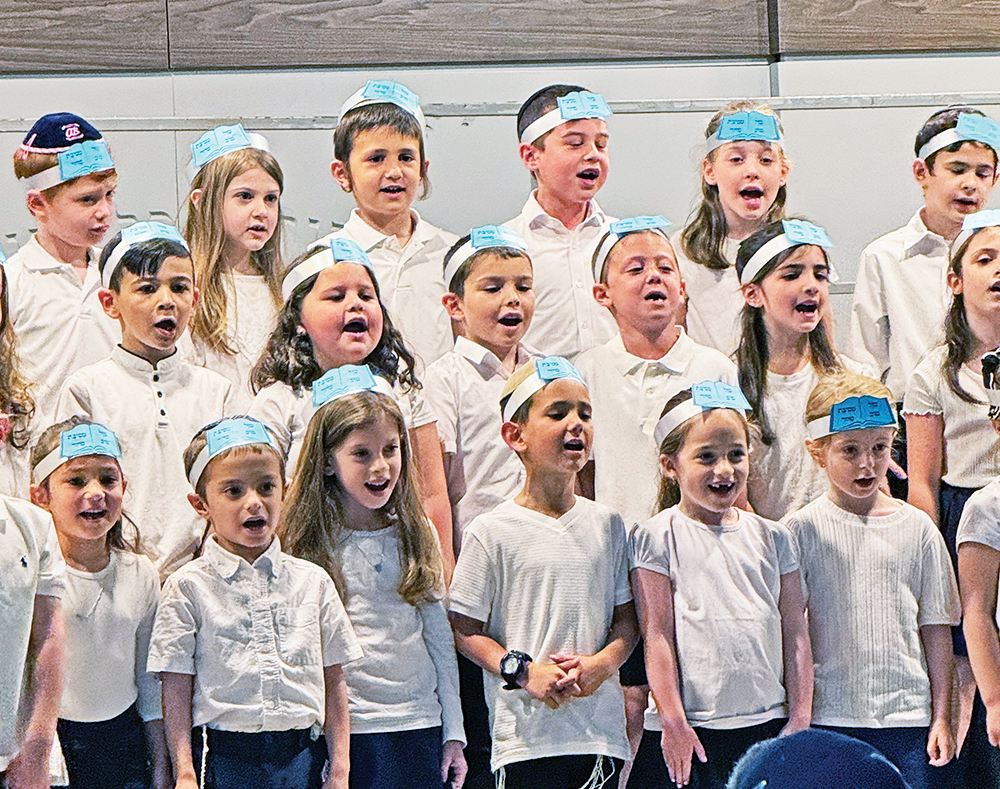From my experience in the world of Jewish education, one major issue that teenagers struggle with is the concept of rabbinic authority. While they accept the existence of God and veracity of the Torah, they are troubled by the authority given to the rabbis, and the many rabbinic expansions of Jewish law, which they believe causes yahadut to feel very constricting.
The truth is that these questions/frustrations are not limited to teens — many adults express them as well. Who are “the rabbis,” and what gives them the authority to establish these rules and laws?
The initial answer is that rabbinic authority comes from God Himself — as God declares in this week’s parsha (17:11), “According to the Torah that they will teach you and according to the judgment that they will say to you, shall you do; you shall not turn from the word that they tell you, right or left.”
While the parameters of this authority are debated, what’s clear is that God gives power to certain rabbis and involves them in the halachic process — such that the concept of rabbinic authority is itself biblical in nature.
But why does God give so much import and power to these rabbis?
A full discussion of rabbinic authority is beyond our purview, but it would be valuable for us to highlight some important and foundational points.
The concept of rabbinic authority is the bedrock of the oral law. In contrast to the written Torah, the oral law was passed down orally for generations — inherently creating a reliance on our great leaders to accurately pass down its contents. Additionally, and more fundamentally, built into the halachic system is the need for the rabbis to carry out two very important functions within the system.
The first function is rabbinic interpretation. The written Torah contains many commandments that aren’t fully explicated in the text — and the rabbis are tasked to interpret the Torah’s meaning using interpretive tools transmitted to Moshe Rabbeinu. For example, the Torah repeatedly states that on Shabbat, it’s forbidden to perform “melacha.” The Torah, however, does not explain what “melacha” means. The interpretation and definition of this term is left to the rabbis.
The second function is rabbinic legislation. This refers to the need for the rabbis to establish new laws in order to safeguard the Torah laws. Based on their unique understanding of people, and out of a desire to ensure Am Yisrael’s commitment to the Torah commandments, the rabbis create a “fence” around the mitzvot through rabbinic laws. Such laws are developed with tremendous thought and consideration.
Although most of rabbinic interpretation and legislation was established by the time of the Mishna and Gemara, rabbinic interpretation has continued throughout the centuries until today. As new realities and technologies present themselves in each generation, rabbinic leaders are tasked with the interpretation and application of the halacha to the contemporary issues of their day.
We can now better understand the crucial role that rabbinic authority plays within halacha. Absent God Himself appearing to apply the Torah to our modern realities, the halachic system itself requires that authority be given to the rabbis to play that role — to guide us in applying the Torah to our modern world. Such rabbinic authority enables halacha to be both timeless and timely, continually relevant to all generations.
Of course, this doesn’t mean that anyone who gets semicha can establish new laws, nor that rabbis are infallible. Initially, the rabbis who were given such authority were those from the Mishna and Gemara — and then, the authority was passed to the few Torah giants of each generation who amassed enough Torah knowledge and mastery to make such important decisions. All other rabbinic figures in our communities are generally sources of information regarding the law, not arbiters of the laws themselves.
Given all of this, part of the tradition that we pass down to our children must include a respect for rabbinic authority, and its place within our mesorah. As always, our childrens’ attitude on this topic will generally depend on what we model for them.
1) What is our attitude towards rabbinic commandments in general? How do we approach rabbinic law? Do we look for loopholes around these laws, do we make negative comments regarding their importance and legitimacy? As we have seen, the Torah commands complete fealty to rabbinic law, even at times where a particular halacha may be challenging or inconvenient.
2) How do we relate to rabbis in our shuls and schools— and what do we model concerning those relationships to our kids? While most of the rabbis and educators in our shuls and schools are not those who are given the far-reaching authority by the Torah, these shul and school rabbonim are the ones who represent Judaism to ourselves and our kids. When we speak derisively or condescendingly about our community rabbi or our children’s rebbe — it certainly has an impact upon our children’s view of the Torah that these individuals represent. We should always encourage our children (and ourselves) to be respectful of people in authority, and it’s even more crucial that this respect be shown to authority figures who represent our Torah.
Of course, no rabbi is above appropriate feedback or criticism — but we must be thoughtful about how, when and where that feedback is relayed.
In this week’s parsha, God introduces us to the world of rabbinic authority. Although this topic can sometimes be a source of frustration for ourselves and our children, we must strive to gain a better understanding regarding the importance of rabbinic authority within Judaism, and properly pass that knowledge and respect down to our children.
Wishing everyone a Shabbat Shalom!
Rav Yossi Goldin is the menahel tichon at Yeshivas Pe’er HaTorah, rebbe at Midreshet Tehilla, and placement advisor/internship coordinator for the YU/RIETS Kollel. He lives with his family in Shaalvim and can be reached at yossigoldin@gmail.com.














